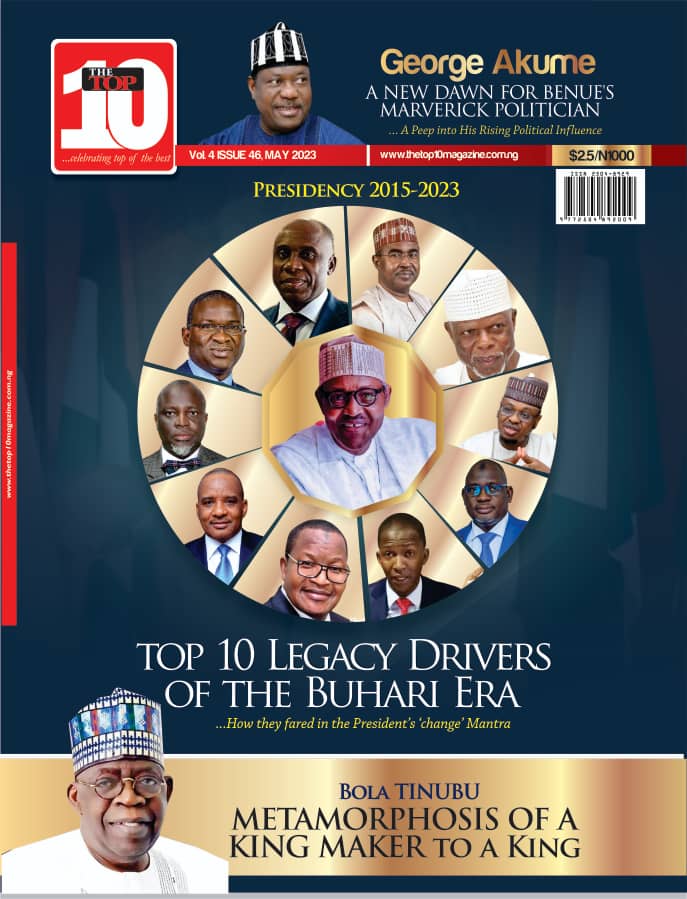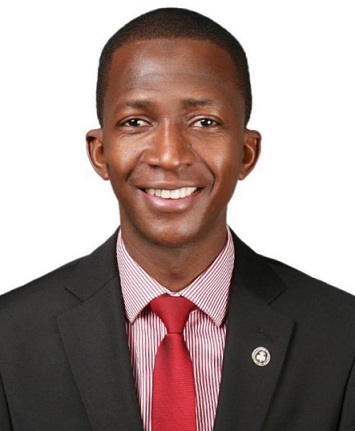Abdulrasheed Bawa is the fourth executive chairman of the Economic and Financial Crimes
Commission (EFCC), who was called for duty when trust and confidence on who leads the
nation’s anti-graft agency were called into question. Anti-corruption is a key element of
President Buhari’s legacy and it mattered that it is neither allowed to waiver nor frustrated by
leadership failure.

A time came in early 2021 when the commission needed a new zeal in leadership to recharge
its mandate and deliver on targets of convictions of suspects and recoveries and Bawa is the
man for whom the President defied the normal appointment procedure to place him in charge.
Against the prevailing order where either serving or retired police personnel were appointed to
head the institution, Bawa is the first regular EFCC official to be so appointed.

The President’s trust on the extensively trained and experienced detective of 17 years standing
apparently hinged on his vast investigative experience, covering the entire waterfront of
prosecution of advance fee fraud, official corruption, bank fraud, money laundering and other
economic and financial crimes related offences.
In just two years on the saddle at the EFCC, the records are affirming that the he is the right and
proper hand needed on deck to drive Buhari’s legacy from the core angle of the anti-corruption
battle. He has fired up the operating force of the agency through reforms and innovation driven
by courage, commitment and integrity in operations.
He has put in place a firmer architecture of the anti-graft war – which is yielding the much
desired fruits in terms of the number of convictions and funds and asset recoveries. Trustees of
power, the sacred cows and the untouchables are coming under fire under the renewed onslaught of
the grand commander of the anti-graft agency.
The convictions that the EFCC secured in 2022 alone are more than the convictions the
commission has recorded from inception, according to its records – a signal of really waking up
to the call of duty.
Speaking in 2022, Bawa said, “last year (2021), which was part of my administration, we
recorded an unprecedented 2,220 convictions and this year, even though it has not ended, we
have so far recorded 3,615 convictions — unprecedented”.
The numbers are in sharp contrast with the commission’s performance in the preceding six
years from 2015 to 2020. Over the six years, the EFCC recorded 195 convictions in 2016, 186 in
2017 and 312 convictions in 2018, according to Bawa. He added that in 2019, the commission
had its best record over the six-year period with 1,280 convictions, which went down to 976 in
2020 – the year before his appointment.
To have got in less than two years close to twice the number of convictions recorded in the
preceding six years speaks loudly of a new zeal of action and strategy at EFCC that is
outmatching those of fraudsters. It testifies of a major change in the game plan from the dreary
approach of a laggard to a craftsman’s attention to details and of diligent cracking of hard nuts
of various types of suspects in trial.
Bawa’s high records of convictions in two years of his leadership of the commission are a
testimony of many years of experience in successful financial crimes investigation, arrest and
prosecution that he has brought into the 20-year old agency.
With increased convictions has also come increased recovery of stolen funds and public assets –
a development which is central to the legacy of the Buhari’s administration. Highlighting the
achievements of the anti-graft agency, Bawa disclosed the recovery of over $121 million
between January and October 2022, which is part of the assets that have been forfeited to the
federal government.
The figure is in addition to monetary recoveries of over N134 billion and various foreign
currencies as well as various non-cash assets such as automobiles, electronics and real estates –
which have been forfeited to the federal government over the same period.
The break-out success of EFCC in just two years of Bawa’s leadership is traced to fundamental
changes in its operational framework. The commission’s operations have been given a new
momentum by digitalizing and institutionalising its processes and procedures – which came on
stream under Bawa’s leadership. The operational leap has placed the commission equal in
operational dynamics ranking among law enforcement agencies in the world.
For the first time, the commission is seen to have transformed into an institution and has done
so in just two years. In place of a large room for discretion that is subject to a lot of influence, it
now has in place a standard operating procedure directing the entire processes and
procedures.
The result is the elimination of arbitrariness that used to clog the wheel of progress and the
ushering in of a process-driven system framework that leaves no room for slumbering all the
way from crimes reporting, investigation to trial of suspects.
Part of the operational dynamism is the launching of an application in July last year, which was
designed to ease the process of reporting economic and financial crimes in the country.
According to Bawa, the app, known as Eagle Eye, has complemented existing channels of
reporting crimes. It offers simplified features of friendly application and easy navigation by any
literate person.
A number of other capacity building initiatives have also been undertaken within the short
space of two years. These include capital projects designed to upgrade the commission's
training capacity, zonal offices and empowering of new departments such as intelligence
department and tactical operating centre.
Accountability and transparency of the commission’s operations is part of the new down at
EFCC. A nationwide disposal of assets seized from corrupt Nigerians was held publicly last year.
The various items were auctioned to the public, giving back to Nigerians what the nation lost to
corruption.






